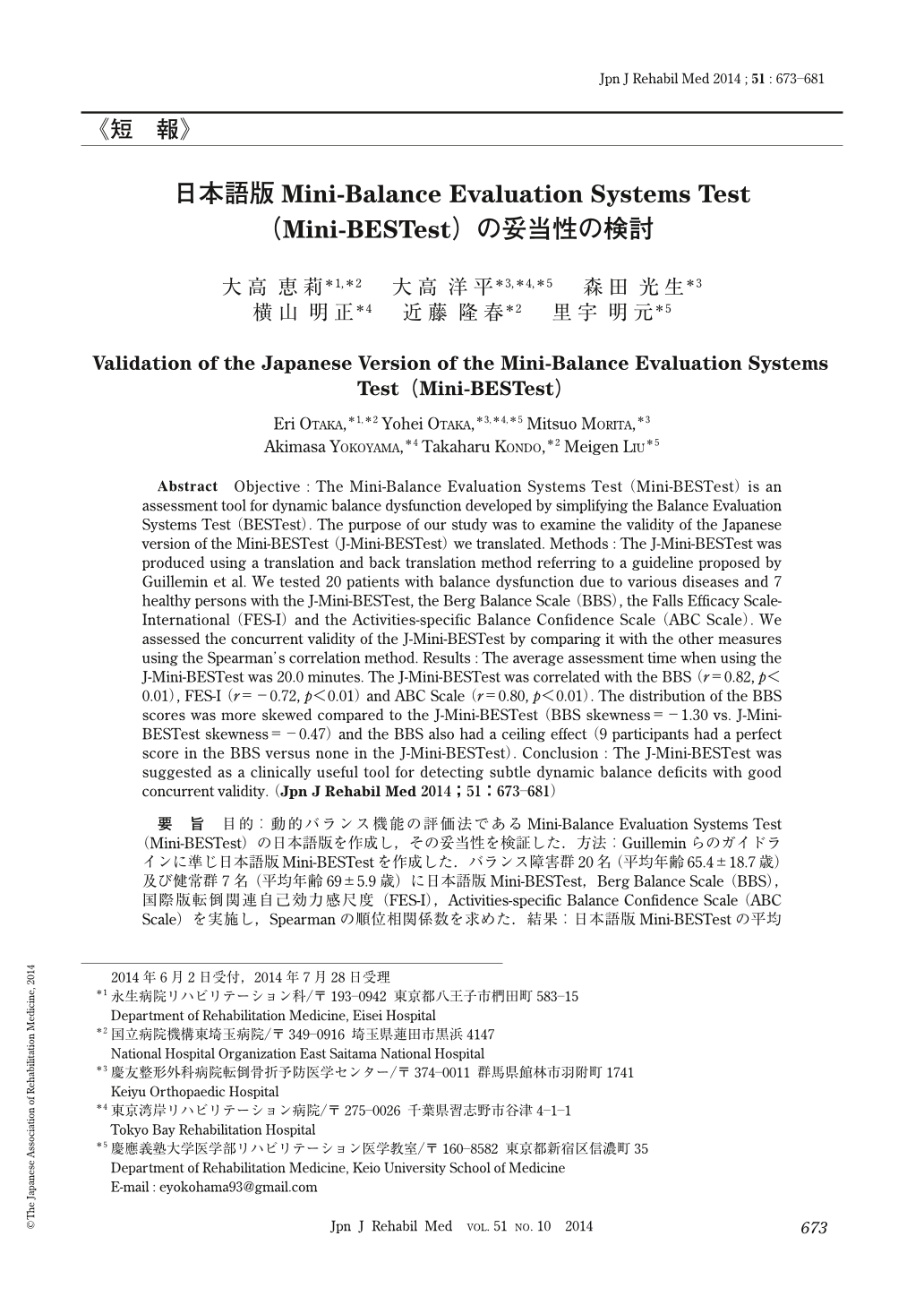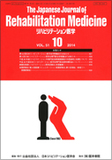Japanese
English
- 販売していません
- Abstract 文献概要
- 1ページ目 Look Inside
- 参考文献 Reference
要旨 目的:動的バランス機能の評価法であるMini-Balance Evaluation Systems Test(Mini-BESTest)の日本語版を作成し,その妥当性を検証した.方法:Guilleminらのガイドラインに準じ日本語版Mini-BESTestを作成した.バランス障害群20名(平均年齢65.4±18.7歳)及び健常群7名(平均年齢69±5.9歳)に日本語版Mini-BESTest,Berg Balance Scale(BBS),国際版転倒関連自己効力感尺度(FES-I),Activities-specific Balance Confidence Scale(ABC Scale)を実施し,Spearmanの順位相関係数を求めた.結果:日本語版Mini-BESTestの平均施行時間は20.0分で,BBS(r=0.82,p<0.01),FES-I(r=-0.72,p<0.01),ABC Scale(r=0.80,p<0.01)と有意な相関を認めた.分布の非対称性を示す指標である歪度(skewness)はそれぞれBBS -1.3,日本語版Mini-BESTest -0.47であった.結論:日本語版Mini-BESTestは既存のバランス評価法との併存的妥当性を示し,かつBBSのような天井効果を認めない点で優れていると考えられた.
Abstract Objective : The Mini-Balance Evaluation Systems Test (Mini-BESTest) is an assessment tool for dynamic balance dysfunction developed by simplifying the Balance Evaluation Systems Test (BESTest). The purpose of our study was to examine the validity of the Japanese version of the Mini-BESTest (J-Mini-BESTest) we translated. Methods : The J-Mini-BESTest was produced using a translation and back translation method referring to a guideline proposed by Guillemin et al. We tested 20 patients with balance dysfunction due to various diseases and 7 healthy persons with the J-Mini-BESTest, the Berg Balance Scale (BBS), the Falls Efficacy Scale-International (FES-I) and the Activities-specific Balance Confidence Scale (ABC Scale). We assessed the concurrent validity of the J-Mini-BESTest by comparing it with the other measures using the Spearman's correlation method. Results : The average assessment time when using the J-Mini-BESTest was 20.0 minutes. The J-Mini-BESTest was correlated with the BBS (r=0.82, p<0.01), FES-I (r=-0.72, p<0.01) and ABC Scale (r=0.80, p<0.01). The distribution of the BBS scores was more skewed compared to the J-Mini-BESTest (BBS skewness=-1.30 vs. J-Mini-BESTest skewness=-0.47) and the BBS also had a ceiling effect (9 participants had a perfect score in the BBS versus none in the J-Mini-BESTest). Conclusion : The J-Mini-BESTest was suggested as a clinically useful tool for detecting subtle dynamic balance deficits with good concurrent validity.

Copyright © 2014, The Japanese Association of Rehabilitation Medicine. All rights reserved.


